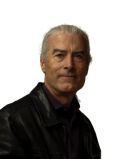Dreaming
The Origins of Religion in Dreaming
Scientific research indicates dreaming is an experiential source of religion
Posted January 21, 2015
One of the oldest theories about the origins of religion argues that religious beliefs and practices are derived from the experience of dreaming. This theory is most often associated with the 19th century British anthropologist E.B. Tylor, as expressed in this passage from the 1873 work Primitive Culture:
"The evidence of visions corresponds with the evidence of dreams in their bearing on primitive theories of the soul, and the two classes of phenomena substantiate and supplement one another….That this soul should be looked on as surviving beyond death is a matter scarcely needing elaborate argument. Plain experience is there to teach it to every savage; his friend or his enemy is dead, yet still in dream or open vision he sees the spectral form which is to his philosophy a real objective being, carrying personality as it carries likeness.”
This same idea was also expressed, in even sharper language, by the German philosopher Friedrich Nietzsche just a few years later, in his 1880 work Human, All-Too Human:
"Misunderstanding of the dream. --The man of the ages of barbarous primordial culture believed that in the dream he was getting to know a second real world: here is the origin of all metaphysics. Without the dream one would have had no occasion to divide the world into two. The dissection into soul and body is also connected with the oldest idea of the dream, likewise the postulation of a life of the soul, thus the origin of all belief in spirits, and probably also of the belief in gods. 'The dead live on, for they appear to the living in dreams': that was the conclusion one formerly drew, throughout many millennia."
I have just finished writing the manuscript for a book that tries to put this idea to the scientific test. The book is titled Big Dreams: The Science of Dreaming and the Origins of Religion, and it will be published by Oxford University Press later this year or early next. The basic thesis is that Tylor, Nietzsche, and others are right, dreaming is indeed an experiential source of religious beliefs and practices, and the best evidence from cognitive scientific research backs them up.
Rather than trying to give an all-encompassing theory of religion, I focus on a few specific areas of religious experience where dreams play an especially influential role: demonic seduction, prophetic vision, ritual healing, and contemplative practice. The title of the book draws on psychologist C.G. Jung’s notion of “big dreams” as rare but extremely vivid dreams that make a strong and lasting impression on waking awareness. I use resources from traditional psychology of religion (e.g., William James, Sigmund Freud) as well as from newer works in the cognitive science of religion (e.g., Emma Cohen, Harvey Whitehouse, James W. Jones) as guides in applying scientific dream research to the study of religion.
This is also the first book I’ve written using the Sleep and Dream Database (SDDb) as a primary resource. I’m just learning how to use the digital tools of the database myself (an upgraded version of the site will come online in the next few days), and the more SDDb analyses I did for this book, the more excited I became about possibilities for future projects in data-driven dream research that look at religious and cultural phenomena with fresh, empirically curious eyes.


